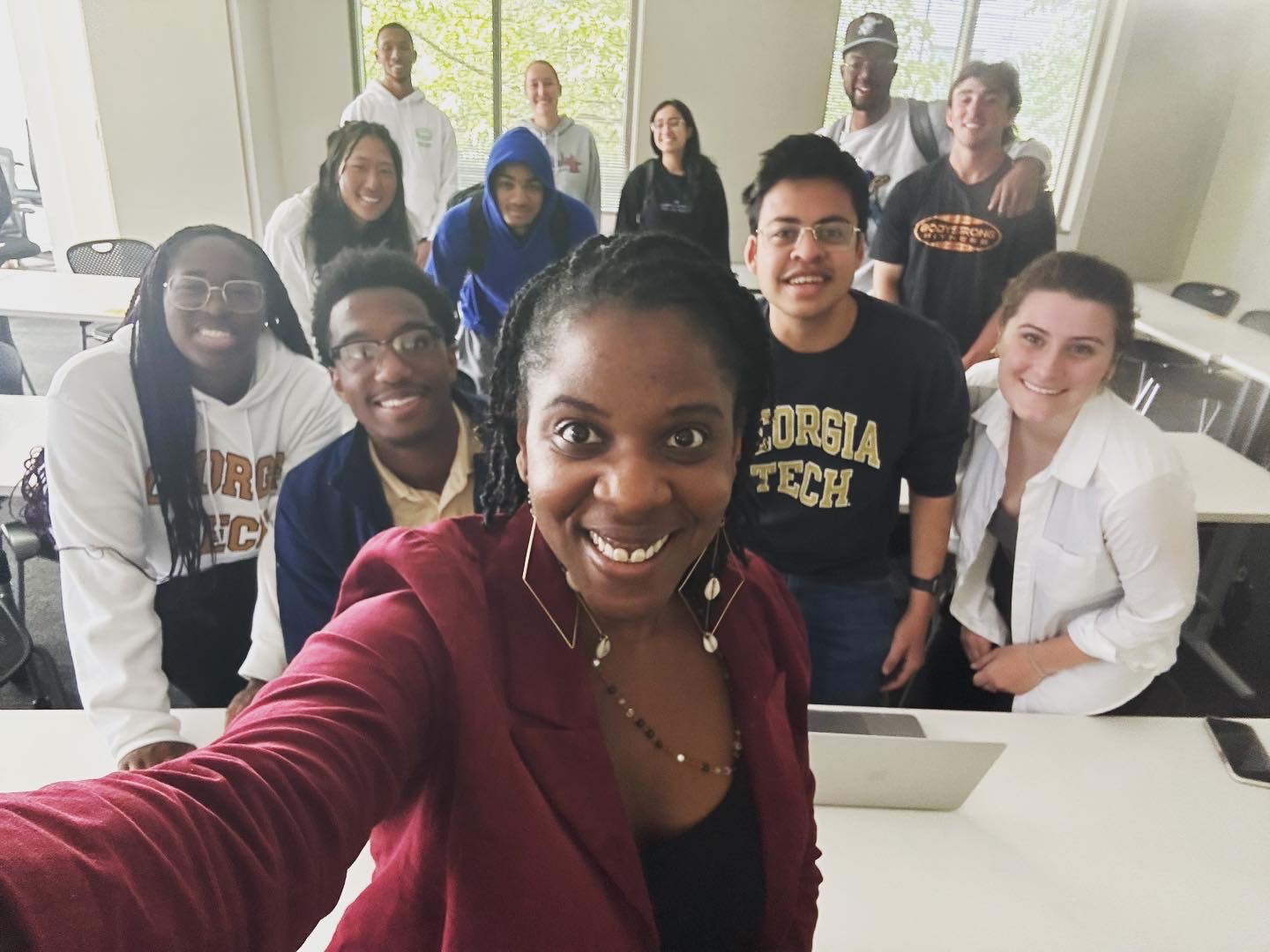The Ray C. Anderson Center for Sustainable Business at the Georgia Tech Scheller College of Business is pleased to share a Q&A with Tiffany D. Johnson. Johnson, associate professor of organizational behavior, is a member of the 2023-24 Faculty Educational Innovation Community. Led by Professor Ravi Subramanian, the initiative provides support to faculty for implementing sustainability into their courses and pedagogy. The initiative aims to serve students interested in acquiring sustainable business competencies in Scheller programs, from undergraduate to graduate and executive education.
Faculty member:
Tiffany D. Johnson, Ph.D.
Associate Professor, Organizational Behavior
In which course did you infuse sustainability as a member of the 2023-24 cohort of the Faculty Educational Innovation Community?
I infused sustainability content into Work, Equity, and Wellness. The elective is offered as an undergraduate-level course (MGT 4803) and as a graduate seminar (MGT 8803).
Describe your sustainability background in your teaching.
Prior to receiving the grant, I had started to use sustainability as a foundational framework for understanding the intersections of wellness and equity in workplaces.
How did the grant support sustainability course infusion?
The grant supported my attendance at a national coffee conference. Attending the conference helped me meet people who informed me about sustainability in the coffee industry. Their stories – which often illuminated the ways in which equity and wellness are considered in the coffee industry – provided examples to share with students in class. I also infused sustainability into the final project, which focused on “third places” in a local sustainability-related community. [A “third place” describes a location other than home or work where people interact. Examples include coffee shops and bake shops.]
Why does sustainability infusion matter?
Sustainability infusion matters in the classes I teach because it offers a comprehensive lens through which we can assess where we’ve been, where we are, and where we want to go. I believe that being able to see through a sustainability lens will help students, their organizations, and the communities served by their organizations lead innovatively in an ever-changing world.
Faculty member:
Tiffany D. Johnson, Ph.D.
Associate Professor, Organizational Behavior
In which course did you infuse sustainability as a member of the 2023-24 cohort of the Faculty Educational Innovation Community?
I infused sustainability content into Work, Equity, and Wellness. The elective is offered as an undergraduate-level course (MGT 4803) and as a graduate seminar (MGT 8803).
Describe your sustainability background in your teaching.
Prior to receiving the grant, I had started to use sustainability as a foundational framework for understanding the intersections of wellness and equity in workplaces.
How did the grant support sustainability course infusion?
The grant supported my attendance at a national coffee conference. Attending the conference helped me meet people who informed me about sustainability in the coffee industry. Their stories – which often illuminated the ways in which equity and wellness are considered in the coffee industry – provided examples to share with students in class. I also infused sustainability into the final project, which focused on “third places” in a local sustainability-related community. [A “third place” describes a location other than home or work where people interact. Examples include coffee shops and bake shops.]
Why does sustainability infusion matter?
Sustainability infusion matters in the classes I teach because it offers a comprehensive lens through which we can assess where we’ve been, where we are, and where we want to go. I believe that being able to see through a sustainability lens will help students, their organizations, and the communities served by their organizations lead innovatively in an ever-changing world.
